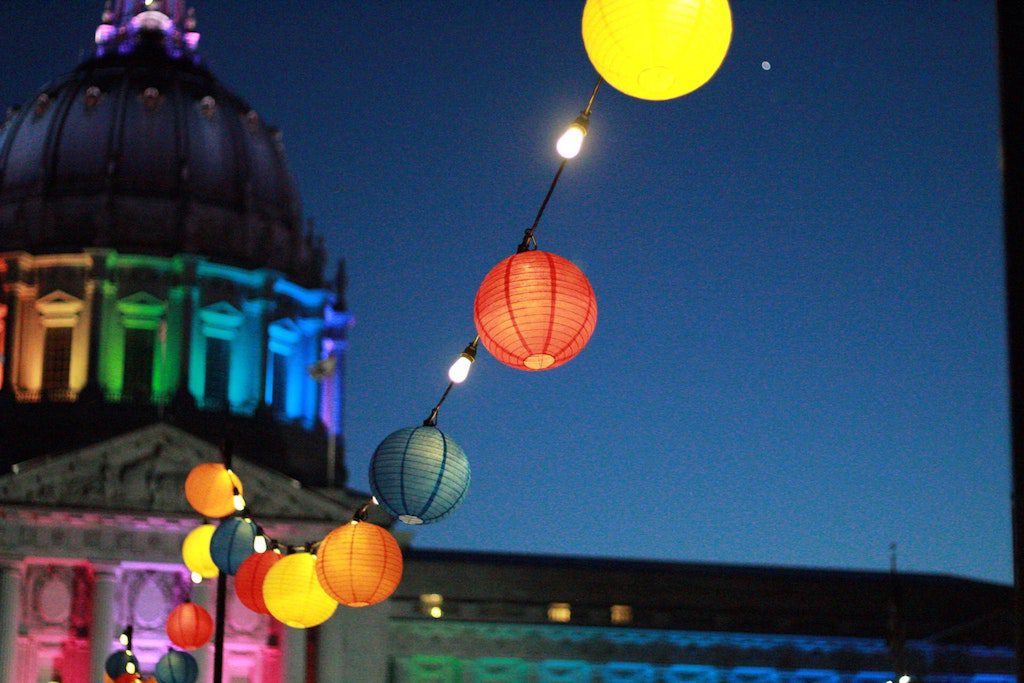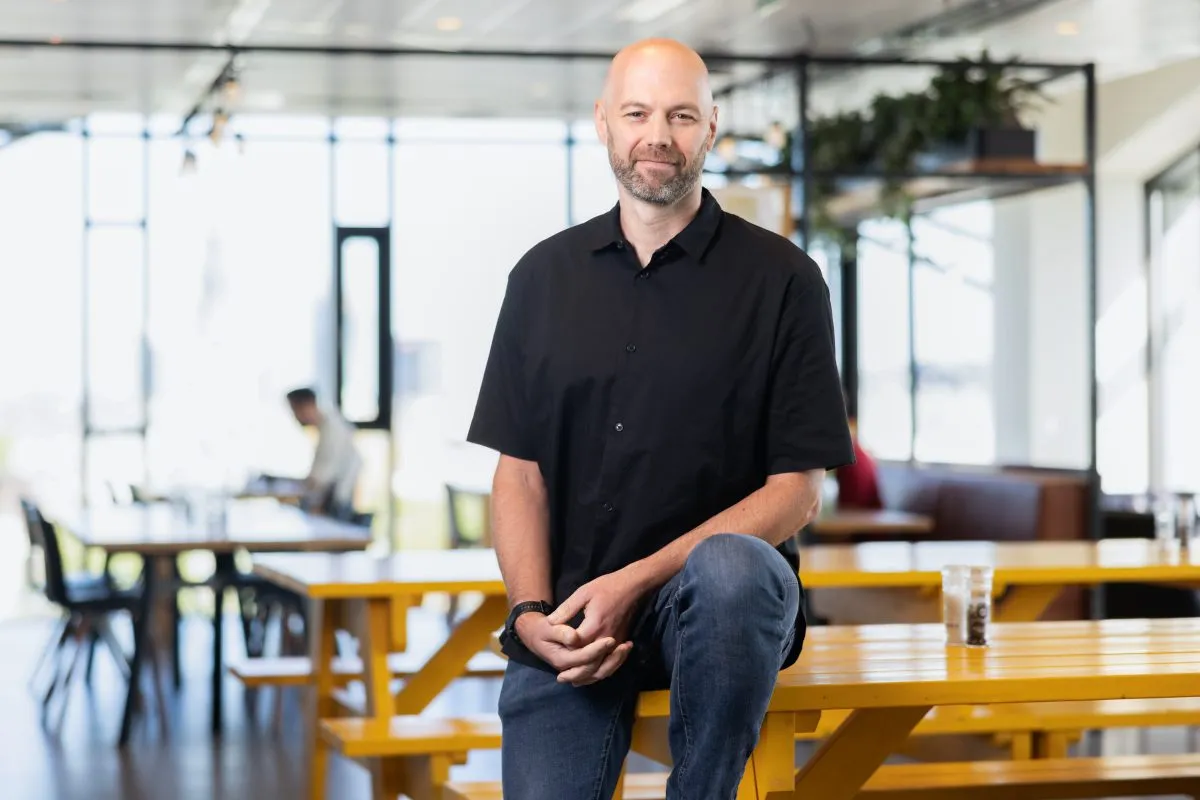Why the LGBTQ Community May Be the First to Travel Again

Skift Take
As travel's great reopening stutters and starts, the big question mark is just how many of the people who've been stuck at home will be ready to travel again — even with the potential risks.
Everyone has their best guess — from the rosy to the doomed — but history suggests that there is one demographic that has proved uniquely willing to travel even when there are risks associated: the LGBTQ community.
"Particularly in New York City, it’s widely said that after 9/11 when things opened back up, our community was the first to be out there, supporting the shows and the restaurants, and the hotels and getting back out into the world," John Tanzella, CEO of the International Gay and Lesbian Travel Association, told Skift back in March.
Fast forward a few months, and that's proving to be true. A poll conducted by market insight and analytics company The Harris Poll found that while still cautious at this stage, LGBTQ appetite to return to travel was outpacing the population at large, with 51 percent of LGBTQ adults expecting to travel for vacation sometime in 2020 versus 46 percent of non-LGBTQ adults. Over the just-gone holiday weekend, 8 percent were willing to plan travel, versus 4 percent.
Another poll by the IGLTA found that two thirds (66 percent) of respondents would feel comfortable traveling again for non-essential/non-business reasons before the end of 2020.
It's important to note that ignoring all risks and defiantly going on as usual — such as those who gathered at a crowded pool party in Missouri over Memorial Day weekend — is not something to be celebrated in 2020. And indeed, mass gatherings like Pride are rightly being skipped this year in cities like London, San Francisco, and New York City, in line with public health advice. However, popular LGBTQ destinations like Fire Island Pines and Provincetown, Massachusetts, are grappling with how to reopen safely amidst demand from LGBTQ people, with an emphasis on safety, including private house rentals and outdoor activities.
“Previous studies have shown our community to be a resilient and loyal travel segment with a history of traveling more frequently than their non-LGBTQ+ counterparts,” said Tanzella said in a statement. “We wanted to document their sentiments during this particularly challenging moment in time to remind the tourism industry at large that LGBTQ+ travelers should be a valued part of their recovery plans. Messages of inclusion have the potential to be even more powerful now.”
There are a couple reasons why LGBTQ folk are historically resilient travelers, in the face of everything from terrorism to recessions to pandemics. The first, says Darren Burn — founder of luxury LGBTQ travel company Out Of Office and managing director of Travelgay.com, a highly visited site for LGBTQ travel — is the rather prosaic reason that a higher proportion of that community is dual income, no kids, allowing more discretionary time and money to spend on travel.
The second, however, is more existential: traveling while gay, lesbian, trans, or queer has always come with higher risks than the non-LGBTQ population. Around 70 United Nations member states criminalize consensual sexual acts between same sex adults, some of them with severe corporeal punishment. In addition, the brutal history of HIV/AIDS in the gay community — for which there is still no cure or vaccine, but there is highly effective treatment — means that "risk is viewed in a different way to the mainstream," Burn said.
"If you think about it, we are sending people to countries where technically they could be murdered for being gay — it’s illegal to be gay in those countries, and yet people will still travel there with our advice because they want to," Burn, who started his own company after he and a partner were turned away from a hotel in another country because they wanted to share a bed, told Skift. "In general our market is certainly not afraid to travel to more difficult destinations."
Ed Salvato, an author and consultant for companies who want to reach LGBTQ travelers and an adjunct instructor at New York University's tourism and hospitality school, says that the LGBTQ travel industry's track record of providing their clients with high level, detailed information and risk assessments means there's a high level of trust already established between small, vetted tour operators and travel agents and the community. "It’s almost like the groundwork is there for a coronavirus response," Salvato said. "People were already doing the work with LGBTQ travel, and marketing can now say [virus preparedness and education] is another one of the things we’re folding in."
When the label "LGBTQ travel" is used, the imagery, marketing, and even stats associated often refer rather narrowly to gay men. But Meg Ten Eyck, a speaker and the editor and founder of EveryQueer Magazine, says that travel isn't just uniquely embedded into the gay male identity, but the community at large. She explained why.
"Travel is built into our culture. For the most part most LGBTQ young people aren’t growing up in super welcoming and affirming households and they’re usually in smaller cities or even rural areas or small towns," Ten Eyck said. "A lot of people flock to the bigger city or the most accepting region that’s close to them as they get older. Even traveling for Pride ... it’s become part of the culture for us to travel."
She added the caveat that demand may not bounce back uniformly. "The more marginalized you are the harder travel is for you in the best of circumstances. When you’re compounding these identities, it makes it even harder to be able to travel," Ten Eyck said. "So I do think for the majority of the LGBTQ community it will rebound quickly," but she said it might be that gay white male demographic rebounds the earliest due to their relative privilege.
Salvato is similarly convinced about the community's desire to get on the road again. "The travel gene is so pronounced in the DNA of queer people. It goes way way back. It’s always been there."




